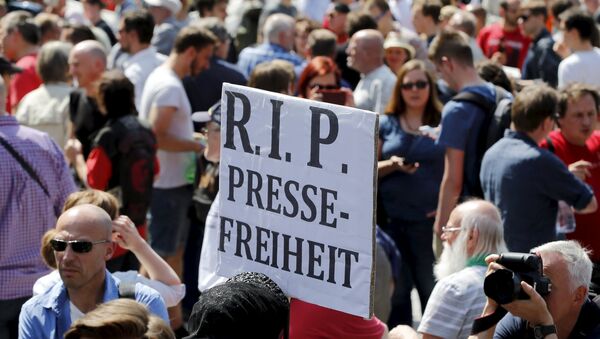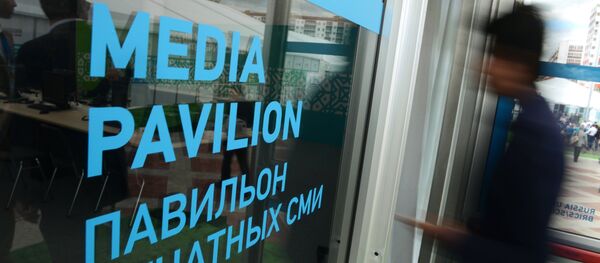In an interview with German radio Deutschlandfunk, Herles said that German journalists are not free to choose the stories and the way they want to cover them. The country's authorities put restrictions on many subjects and have forced the media to follow certain instructions, reminding the journalist of the times of Germany's division.
"At that time, we were not allowed to say anything negative about the new federal states. Today we can't say anything negative about refugees. This governmental journalism leads to the situation on which people no longer trust us," Herles said.
"Publishers have to consider [following issues]: How do I sell my paper? How much profit do I make?" Wickert said, adding that financial interests significantly infringe on the freedom of speech and the power of media as the Fourth Estate.
The journalist stressed that the main task of the media is to inform the reader so that he or she can form an opinion by themselves.
"But I observe a false understanding of tolerance and democracy, because some things are labeled as taboo. There are, for instance, moments when you have to admit that there were Algerian or Moroccan or Tunisian youths who behaved in a way we do not tolerate here in Germany," the journalist stated.
"The interesting thing is that they started to discuss problems in connection with people from North Africa only after the New Year's Eve in Cologne, because it proved to be a mass phenomenon. But then it suddenly turned out that it had been existing by us for a long time! However, earlier it was a taboo," Wickert stated.
In several media interviews and in his book, Ulfkotte revealed how German journalists and politicians were recruited as CIA assets to write stories that are aimed at serving the geopolitical interests of Washington, and not the interests of the German people.





